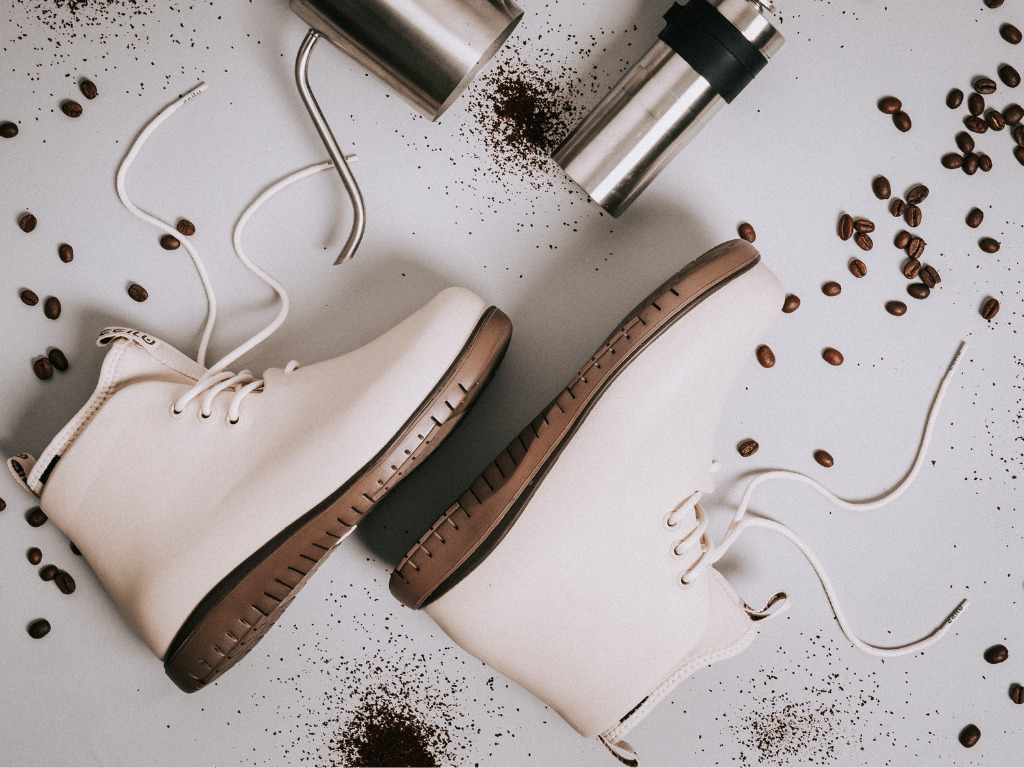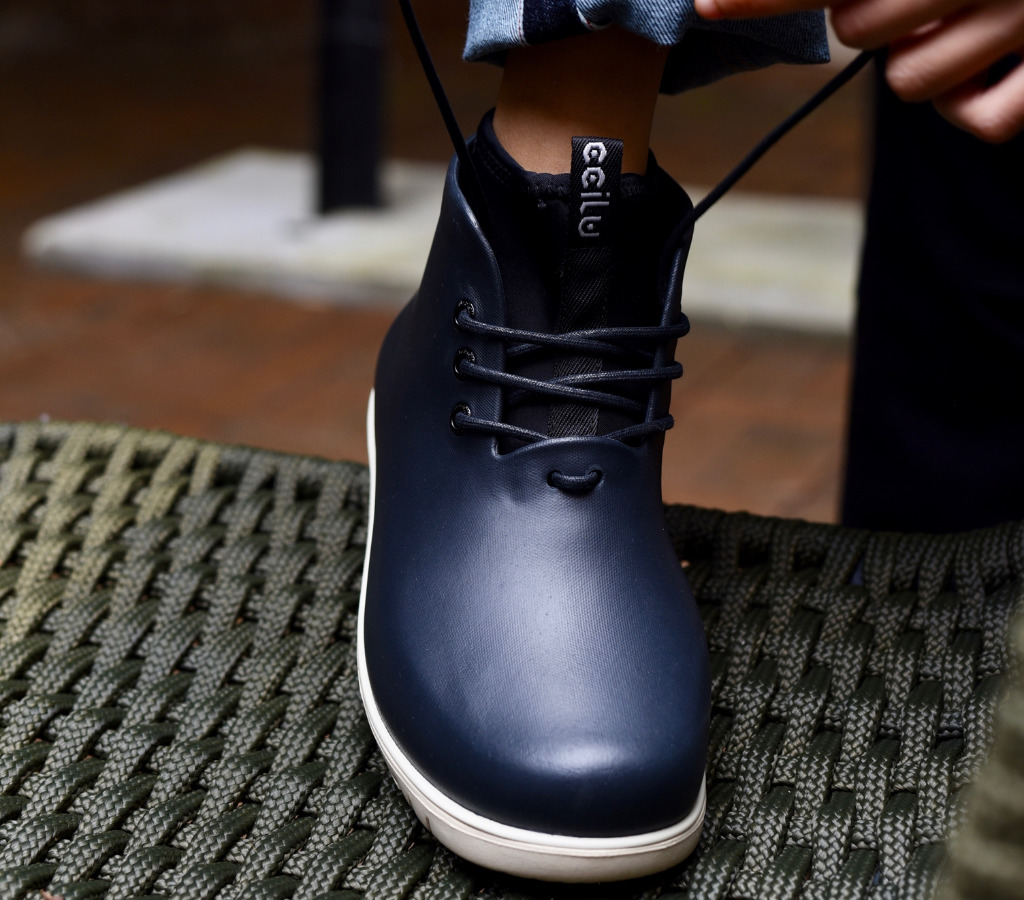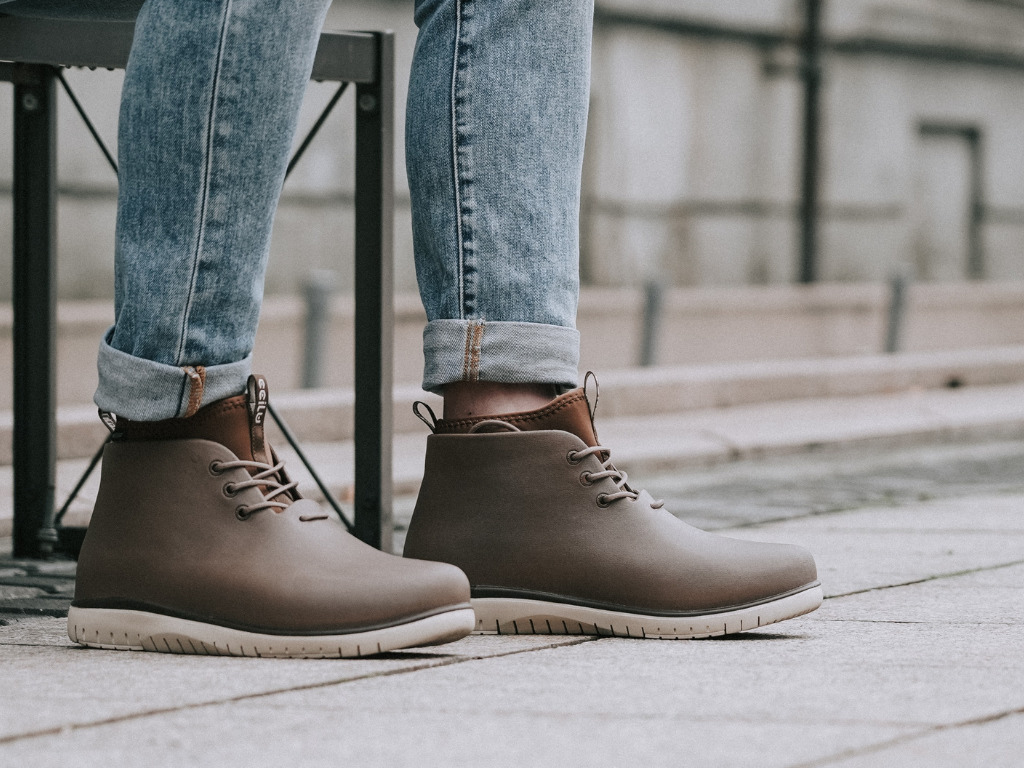4 Mins Read
Footwear company Ccilu, which creates sustainably sourced and ethically made products, unveiled a new rainboot, the XpreSole Panto—the world’s first boot to be developed from discarded coffee grounds.
The XpreSole Panto contains 100% recycled or eco-friendly material and the company uses new technology to upcycle waste coffee grounds into a patented, high-tech footwear material. Vegan-certified, the Kickstarter campaign for the all-season boot aims to raise US$10,000 for its product and in just 24 hours of the reveal, it raised 75% of its target and is now at US$ 21,340.
Transforming Coffee Waste
More than 25 billion kilograms of coffee are wasted every year, out of which only 4% is properly recycled. The remaining coffee grounds release huge amounts of methane, a GHG that is 28x deadly than carbon dioxide.
Ccilu’s innovation aims to drastically reduce this coffee waste, with each pair of boots recycling 15 cups of coffee, thus limiting CO2 and methane emissions.
XpreSole Technology
The company sources its spent coffee grounds from local coffee shops in Taiwan. It is then dehumidified and ground, and pelletized using the patented XpreSole technology before it’s transformed into fabrics making up the lining and the insole.
Injection molding technology is utilized to merge the pelletized coffee into the shell and outsole materials. Around one-third of the end product has now waste coffee grounds.
“Our business has been creating sustainable footwear for a decade, and in creating the XpreSole Panto, we wanted to address a type of waste that’s frequently overlooked, but one that has a significant environmental impact,” president and CEO of Ccilu, Wilson Hsu said in a statement. “At the same time, we wanted to create a piece of footwear that’s eminently wearable, and suitable for any number of occasions—whether commuting across town, hitting a hiking trail, or as part of a smart-casual outfit for a night out. The XpreSole® Panto isn’t just a boot—it’s a commitment to reimagining how the industry produces footwear.”

The rain boot is designed for hiking and according to the company, it weights lighter than the average boot at around 230 grams. The boots are 100% water and dirt resistant with a moisture-wicking, fast-drying and odor-resistant liner. It is machine washable up to 100+ wash cycles.
The other eco-friendly materials are a blend of ‘coffee yarn’ and flexible Ortholite, a foam derived from recycled rubber with laces made from recycled plastic bottles. For the shell and outsole, the company has incorporated ‘Eco EVA’ which limits the carbon footprint of the raw materials. It further slashes the footprint of the production process to half of the industry average.
Our business has been creating sustainable footwear for a decade, and in creating the XpreSole Panto, we wanted to address a type of waste that’s frequently overlooked, but one that has a significant environmental impact
Wilson Hsu, president and CEO of Ccilu
Read: Your Daily Cup Of Coffee Is An Eco Minefield, Here’s What To Do About It

The XpreSole Panto has won several design awards like the Red Dot’s ‘Best of the Best’, iF Design’s Gold Award, and A’Design’s Silver Award. At the end of last year, it received an honor from the Taipei International Design Awards. Ccilu is not new to awards. Since 2017, it has been winning a total of 12 awards for its products.
Going forward, the company plans to introduce the world’s first carbon-neutral footwear by the end of this year.
Available in four colorways, the range is available on Kickstarter with pledge packages beginning at US$79. Once the campaign is completed, consumers will be able to purchase the boots from the website, its flagship stores and select retail partners.
Elsewhere, Finland-based Rens Original created sneakers from upcycled coffee grounds, in the same country which consumes the most amount of coffee per capita in the world. Each pair is made from 26 cups of coffee and six plastic bottles.
Read: Caffeinated Trees? Scientists Find Coffee Waste Can Speed Up Forest Recovery
Lead image courtesy of Ccilu.




